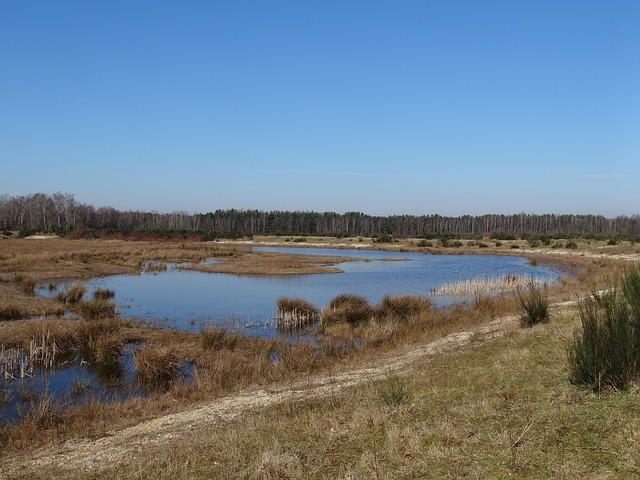rto88 👌 RTO88: A Crossroads for Brazil's Political Future

RTO88: A Crossroads for Brazil's Political Futurerto88
As Brazil navigates the complexities of its political landscape, the RTO88, a significant legal framework established in 1988, stands as a testament to the nation’s commitment to democracy and social justice. However, as the country faces new challenges in governance, public policy, and societal expectations, the relevance of RTO88 is increasingly brought into question. This article delves into the implications of the RTO88 framework, assessing its foundational principles while advocating for a critical evaluation of its role in contemporary Brazilian society.rto88

At the heart of RTO88 lies the promise of a democratic state, envisioned as a mechanism to safeguard the rights of all citizens. The document emerged from a period marked by a struggle for democracy, embodying aspirations for a government that is responsive to the needs of its people. RTO88 enshrines fundamental rights, ranging from social and economic rights to civil liberties, forming a cornerstone upon which the nation’s governance operates. However, as the socio-economic landscape evolves, the question arises: Are the ideals of RTO88 being realized in practice, or have they become mere aspirations?rto88
One of the most pressing issues facing Brazil is the growing inequality that plagues its social fabric. Despite the constitutional guarantees for social rights, including education, health, and housing, vast segments of the population remain marginalized and disenfranchised. The persistence of poverty and limited access to quality public services starkly contrasts with the ideals set forth in RTO88. This disconnect raises critical concerns about the effectiveness of the legal framework in addressing the needs of the most vulnerable citizens. It prompts a necessary discourse on whether RTO88 has the flexibility to adapt to the complexities of modern governance or if it requires significant reform to meet the demands of a changing society.rto88

Moreover, the political environment in Brazil has experienced significant turbulence in recent years, characterized by polarization, corruption scandals, and a growing distrust in institutions. The RTO88 framework, while comprehensive, may not adequately address the nuances of contemporary political challenges. The rise of populism and the erosion of democratic norms present a dilemma: How can RTO88 evolve to safeguard democratic principles in an era marked by disillusionment? The need for a robust legal framework that can respond to these challenges is more urgent than ever, raising the question of whether the RTO88 can be reinterpreted to reinforce the democratic ethos it originally championed.rto88
In addition to socio-economic and political challenges, the environmental crisis poses another significant test for RTO88. Brazil is home to some of the richest biodiversity on the planet, yet the relentless pursuit of economic growth has often come at the expense of environmental preservation. The constitutional recognition of the environment as a fundamental right under RTO88 symbolizes an essential commitment to sustainable development. However, the failure to implement effective environmental policies highlights the gaps between constitutional promises and reality. The ongoing deforestation of the Amazon rainforest serves as a stark reminder that the ideals of RTO88 must be translated into actionable policies that prioritize environmental stewardship and the rights of indigenous communities.rto88
Furthermore, the evolving landscape of technology and information presents new challenges that RTO88 must confront. In an age where misinformation spreads rapidly and digital privacy is frequently compromised, the rights to information and communication enshrined in the constitution require reexamination. The legal framework must adapt to safeguard citizens from the threats posed by the digital realm while ensuring that freedom of expression remains protected. The intersection of technology and governance necessitates a proactive approach, one that aligns with the progressive ideals of RTO88 while addressing the complexities of a digitally connected society.
In conclusion, RTO88 remains a crucial element in Brazil's political and social landscape, representing a commitment to democracy, social justice, and human rights. However, its effectiveness in addressing contemporary challenges is increasingly questioned. The issues of inequality, political polarization, environmental degradation, and technological advancement illustrate the need for a critical reassessment of the legal framework's role in modern governance. Brazil stands at a crossroads—one that requires a collective effort to reimagine RTO88 as a living document, capable of evolving with the times and remaining relevant in the quest for a more equitable and just society. Only through a concerted effort to uphold the ideals of RTO88 can Brazil hope to fulfill the promise of its democratic foundation and secure a brighter future for all its citizens.rto88
Fale conosco. Envie dúvidas, críticas ou sugestões para a nossa equipe através dos contatos abaixo:
Telefone: 0086-10-8805-0795
Email: portuguese@9099.com


